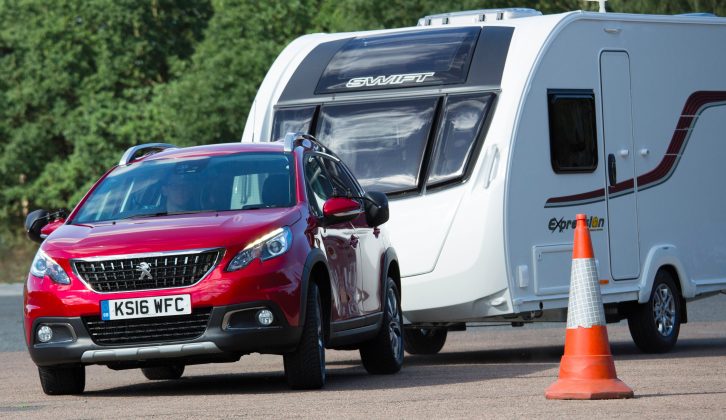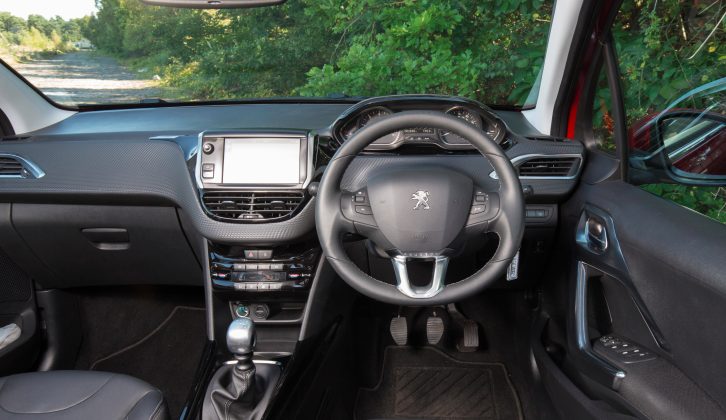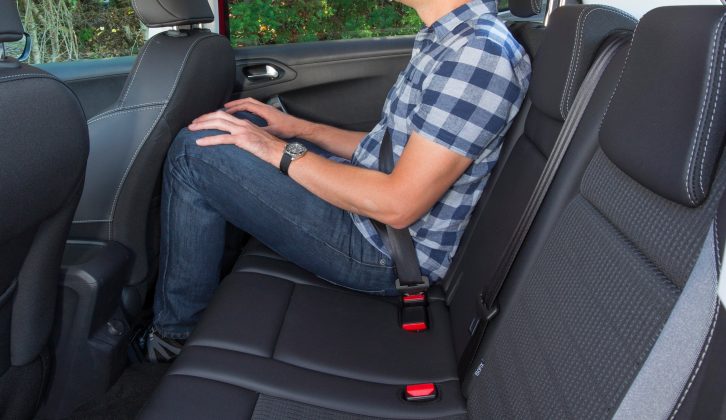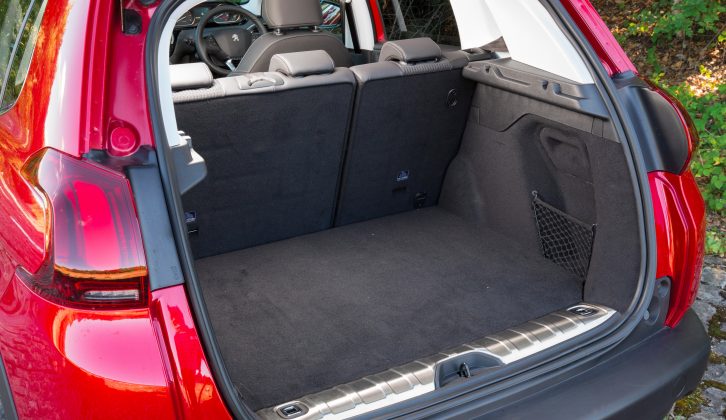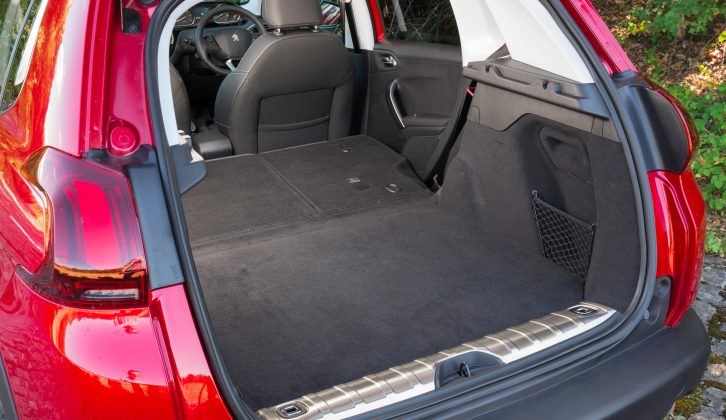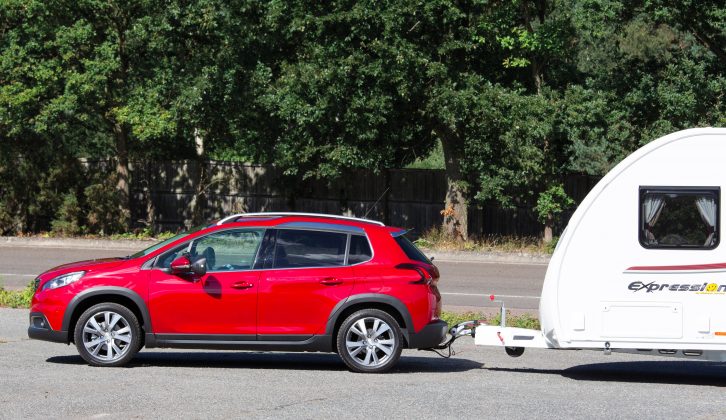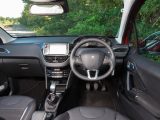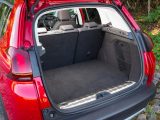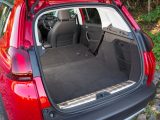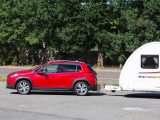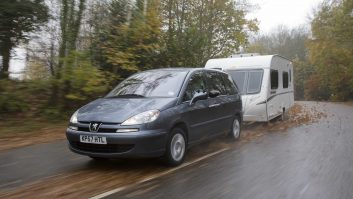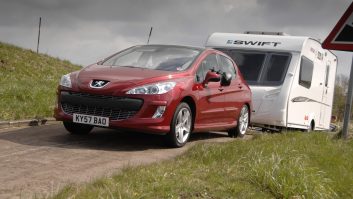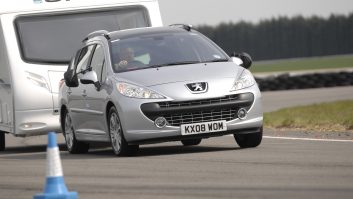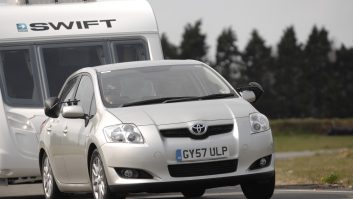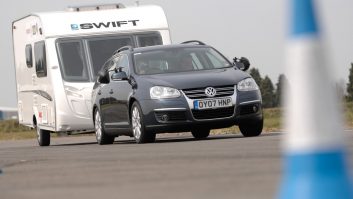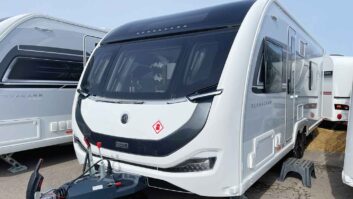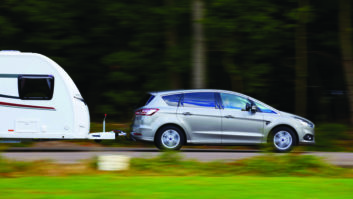Verdict
The Peugeot 2008 is a striking car inside and out. However, its abilities as a tow car are quite modest.
With stronger brakes and better stability we could recommend the Peugeot more highly.
Pros
It’s practical for a car of this size
Fuel economy is good
Cons
You need to work the gearbox hard to get it going when towing
It isn’t too engaging as a solo drive
Peugeot has facelifted the 2008 crossover. But is it a model caravanners should consider?
The new grille brings the car into line with Peugeot’s latest designs. And this, along with some chunky wheelarch extensions, helps give the 2008 a tougher appearance.
We’ve been driving the most powerful diesel model, the Blue HDi 120, in mid-spec Allure trim. We want to find out what tow car ability it has – has it got what it takes to make a practical small tow car for lightweight caravans?
We achieved 34.8mpg towing on a mix of A-roads and motorways
Towing
The Peugeot 2008 is a light car, with a kerbweight of 1275kg (including 75kg for the driver not included in Peugeot’s published kerbweight). That gives a modest 85% match figure of 1084kg, well within the car’s 1300kg legal towing limit.
Those figures compare well with those of the equivalent Renault Captur, which has a kerbweight of 1265kg and a legal towing limit of 1200kg.
We matched the 2008 to a 2017 Swift Expression 484 with a Mass in Running Order of 1106kg. The Peugeot’s 1.6-litre diesel engine proved up to the job of pulling a caravan of this weight, provided the driver was happy to work the gearbox hard.
We often needed a couple of downshifts on slopes where usually one would have sufficed. The car’s tall gearing was particularly noticeable on the motorway, pulling just 1600rpm or so in sixth gear. We changed down to fifth to hold speed, even on modest gradients.
There’s enough torque (221lb ft at 1750rpm) for reasonable acceleration, though, as shown by the 14.2-second 30-60mph time.
In calm weather the 2008 felt secure enough, but the Peugeot tended to wander in crosswinds or when overtaking high-sided vehicles. It behaved well in our lane-change test, though, with just a little pushing and shoving from the caravan.
In the hill-start test the handbrake needed a second, firmer pull before it would hold car and caravan still on a 1-in-10 slope. The car pulled to the top with no wheelspin or excessive clutch slip.
The biggest disappointment was the Peugeot 2008’s braking: it took 11.9 metres to stop car and caravan from 30mph on a dry track. That’s a metre or so farther than we expected.
Everyday Driving
In everyday driving the 2008 is competent but unremarkable.
The engine is lively enough without a caravan behind it, although it’s rather clattery, especially when cold. There’s a little more road noise than we’d like, too.
On twisty roads you would have more fun in a Mazda CX-3. The Peugeot’s steering is light and direct, but short on feel.
There’s also lots of lean if you corner enthusiastically. Plus, the ride is on the firm side, and doesn’t feel settled over low-speed lumps.
Despite the 4×4 styling, all 2008 models are front-wheel drive. However, the car comes with all-season tyres which promise decent grip on a variety of surfaces. There’s also Grip Control, which gives the driver a choice of settings to improve traction in various conditions.
Space
For a small car, the Peugeot 2008 is quite practical. There’s not a huge amount of legroom up front, but even so we found a 6ft 3in driver could get comfortable enough.
The dashboard layout is attractive and clear. In addition, we’re always pleased to see air-con controls kept separate from the touchscreen system.
The unusually small steering wheel takes some getting used to, although it’s a Peugeot feature we’ve grown to like over time. However, you have to look over the wheel to see the dials, not through it, and shorter drivers may find the rim gets in the way.
There’s not a lot of space in the back of the car, but then the 2008 is based on the 208 supermini – and it’s certainly more generous than a Nissan Juke.
The boot is a healthy size for such a small car. And it’s good to see that there’s only a slight slope to the boot floor with the rear seats folded.
Running Costs
With the most powerful diesel engine in the range in mid-spec Allure trim, the Peugeot costs £19,820. What Car?’s research suggests that should drop to well under £18,000 if you haggle.
Standard equipment includes 17-inch alloys, dual-zone air-conditioning, a DAB radio, Bluetooth connectivity, rear parking sensors, and automatic headlights and wipers.
Running costs should be very low, especially fuel bills – we achieved 34.8mpg towing on a mix of A-roads and motorways.
Resale values are relatively weak, though, with a predicted return of 35% after three years.
Technical Specifications
| Engine Size | 1560 cc |
| Kerbweight | 1275 kg |
| 85% KW | 1084 kg |
| Towball Limit | 53 kg |
| Maximum Towing Limit | 1300 kg |
| Power | 120 bhp |
| Torque | 221 lb ft |
| Offical MPG | 76.3 mpg |
| CO₂ | 96 g/km |
